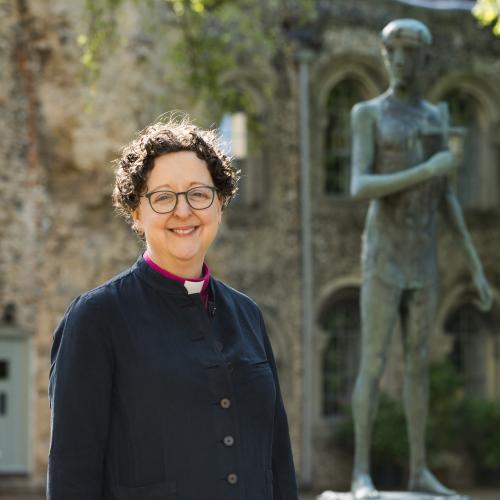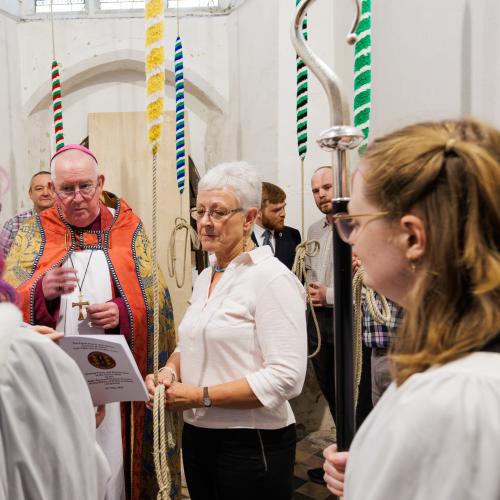|
Bishop Graham Knowles |
Acting Bishop of St Edmundsbury and Ipswich |
|
|
|
Suffragan Bishop of Dunwich |
|
|
Bishops' Chaplain |
01473 252829 |
|
|
Bishops' and Archdeacons' Executive Assistant |
01473 252829 |
|
|
Accounts and Office Manager |
01473 252829 |
|
|
Bishop Graeme's Executive Assistant |
01473 252829 |
|
|
Bishop's Advisor for Self-Supporting Ministry |
01473 298500 |
Bishop Graeme Knowles writes…
I can still remember the feeling of overwhelming responsibility that came over me when 50 year ago I became a priest. During the service for the ordination of priests, the bishop says over those to be ordained: It is to him (Jesus) that you will render account for your stewardship of his people. The sense that I had an account to render; that I would be judged as to whether I had been a good steward, made a considerable impact on my life.
I am celebrating the fiftieth anniversary of my ordination as a priest this very month and my first job as a parish priest was at Broadstairs, in Kent. I have had a flood of memories on my 50th anniversary of becoming a priest, not least because I was at a conference for Bishops in Canterbury, Kent, this month as well and it has made me think back about my ministry during these past fifty years.
For all of us, life is a precious gift. It is not a right. We receive the gift and then it is up to us to decide what we do with it. The idea of stewardship, I would suggest, is relevant for every one of us.
The dictionary speaks of the steward as one who supervises, directs and regulates a household. If our life is the “household” then it falls to us to direct and supervise how we act and speak, to make the most of the gift. It is often tempting to go with the flow in life, to let things run.
We are called, though, to live in community. We are surrounded by other people living out their lives. We have the choice to live in isolation or to engage with those around us.
The society in which we live today might be said to favour the individualistic approach, what is best for me, rather than what is best for the community.
I would urge that is we are serious about our sense of stewardship of the life we have been given, then our commitment should be to community, rather than to ourselves.
We are used to the concept of Commonwealth for example as being something that binds countries together. The root of the word is weal, a Saxon word, meaning welfare or well-being. Thus a commonwealth is a society which has at its heart the idea of the common good.
To live in such a society involves a willingness to let go personal benefit and to look to a wider notion of communal well-being. This demands action from each and every one of us as stewards of the gift of life freely given to us, and yes, some sacrifice. But by taking responsibility for the gift of life, by being active stewards, we have it in our power to transform the society in which we live and make a real difference to others lives.
Bishop Graeme Knowles is the interim Bishop of St Edmundsbury and Ipswich following the retirement of Bishop Martin Seeley. A permanent Bishop is expected to be appointed later this year.
Previous Press Articles
2025: May | April | February | January
2024: November | October | June | May | April | March | February | January
2023: December | November | July | June | May | March | February | January
2022: November | October | September | August | July | June | March | January
To find out more
|
P |
|
 lease follow the Bishop on
lease follow the Bishop on  Please subscribe to the Bishops'
Please subscribe to the Bishops' 

